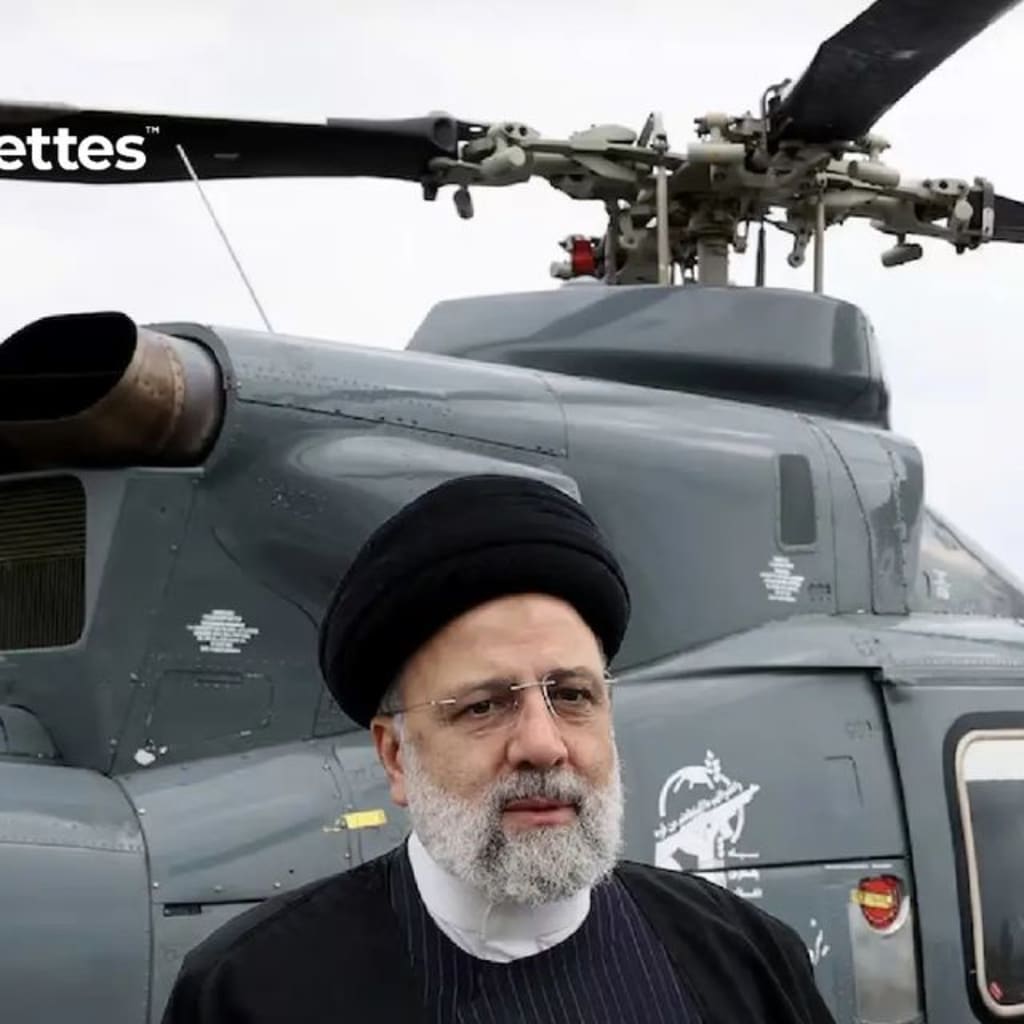Another High-Profile Tragedy: The Fatal Crash of VIP Helicopter
Fatal Flight

On May 19, 2024, a Bell 212 helicopter carrying Iranian President Ebrahim Raisi and Foreign Minister Hossein Amir-Abdollahian crashed, marking yet another tragic incident involving high-profile passengers navigating mountainous terrain in poor visibility. This accident underscores the critical need for lessons to be learned from such events.
Given the heightened tensions in West Asia and Israel's assertive stance, bolstered by American support, suspicions of Israeli involvement in the crash are inevitable. Although Tel Aviv has denied any connection and distanced itself from the incident, the credibility of both the United States and Israel is in question, necessitating thorough investigations to validate their claims of innocence.
Questions Arise
Several questions remain unanswered: Was the Iranian President's itinerary known in advance? Was the flight organized for an urgent meeting? Was President Raisi informed of the hazardous weather conditions?
Pressure on Pilots
History has seen numerous fatal crashes involving very important persons (VVIPs). On September 2, 2009, a Bell helicopter crash claimed the life of Y.S. Rajasekhara Reddy, Chief Minister of Andhra Pradesh, as he was en route to a political meeting in poor visibility near Kurnool. As usual, the investigation blamed the pilots while obscuring the full truth.
On December 8, 2021, India’s first Chief of Defence Staff, General Bipin Rawat, and his entourage perished in an Indian Air Force Mi-17 helicopter crash near Coonoor, Tamil Nadu. Despite the option of traveling by road, Gen. Rawat chose to fly in foggy conditions. Whether the crew highlighted the dangers of flying in such weather remains unknown, as military accident reports are often concealed.
Why do pilots succumb to pressure to fly in dangerous conditions? Trained to handle various weather scenarios, pilots are often overridden by passengers with little knowledge of aviation hazards but with pressing agendas. Politicians rarely heed pilots' advice.
Global Instances of Pressure
This issue isn't confined to one region. On April 10, 2010, a plane carrying Polish President Lech Kaczyński and his wife crashed in fog, killing 96 people. They were headed to a commemoration near Smolensk, Russia. Investigations by Polish and Russian agencies revealed that the pilots attempted an approach in unsafe conditions, resulting in a crash short of the runway.
Weather and Judgement
Fog and heavy rain create numerous visual illusions, affecting depth perception and judgment. Rainwater on aircraft windscreens can cause significant misjudgments. Navigation in poor visibility has improved with GPS, accurate to within a meter. However,
military aircraft often tweak GPS systems to avoid enemy detection, which can introduce errors. For example, the Indian Air Force uses a system called EVER-MD, differing from the global standard WGS 84, potentially causing significant positional errors.
Safety Practices and Accountability
Comparatively, in the U.S., safety protocols are stringent, especially at challenging airfields like Aspen in Colorado. Pilots require special training to navigate its foggy conditions. An incident on March 29, 2001, involved a Gulfstream Avjet charter flight that crashed due to owner pressure to fly despite poor visibility. Transparent investigations and findings help prevent the recurrence of such accidents.
In India, many aviation accidents, both fatal and non-fatal, involve pilot errors and regulatory violations by the Directorate General of Civil Aviation, the Airports Authority of India, and airlines. Despite recurring issues, aviation safety often receives inadequate attention, with a judiciary that lacks a deep understanding of these matters.
Questions from the Iran Crash
The recent crash involving the Iranian President and Foreign Minister raises several critical questions. The helicopter was U.S.-made; did sanctions result in any vital navigation equipment or parts being denied to Iran? Israel has denied involvement, but can this be trusted? Will U.S. agencies confirm their non-involvement, as well as that of Israel?
Ultimately, decisions about flight safety should rest with the pilots, free from external pressure. Overruling a pilot’s judgment, regardless of the passenger's rank, can lead to disaster. The tragic loss of high-ranking officials and innocent passengers in this crash highlights the need for better decision-making and respect for aviation safety protocols. One hopes that this incident prompts leaders worldwide to prioritize safety and heed the expertise of their pilots.
About the Creator
shanmuga priya
I am passionate about writing.
Enjoyed the story? Support the Creator.
Subscribe for free to receive all their stories in your feed. You could also pledge your support or give them a one-off tip, letting them know you appreciate their work.
Reader insights
Outstanding
Excellent work. Looking forward to reading more!
Top insights
Compelling and original writing
Creative use of language & vocab
Easy to read and follow
Well-structured & engaging content
Excellent storytelling
Original narrative & well developed characters
Expert insights and opinions
Arguments were carefully researched and presented
Eye opening
Niche topic & fresh perspectives
Heartfelt and relatable
The story invoked strong personal emotions
Masterful proofreading
Zero grammar & spelling mistakes
On-point and relevant
Writing reflected the title & theme






Comments (1)
Very interesting read. Thanks for sharing your insight. So sorry for Iran's loss too. 😢